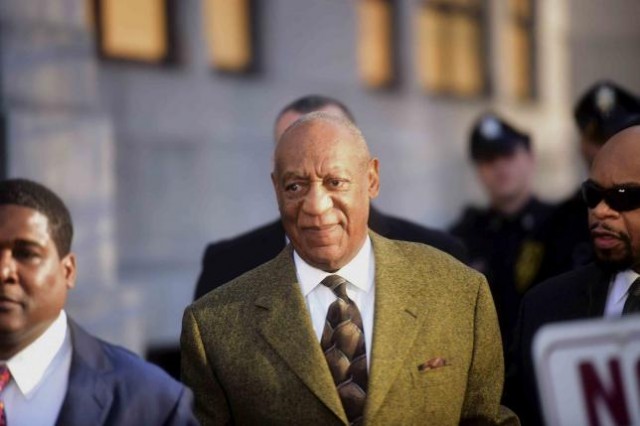
The comedian Bill Cosby lost his bid on Tuesday to force the publisher of New York magazine to comply with a subpoena seeking reporters’ notes and other material for a cover story last year chronicling 35 women’s sexual assault claims against him.
U.S. District Judge Paul Gardephe in Manhattan ruled against Cosby’s effort to compel New York Media LLC to provide access to unedited interviews of six women pursuing a civil lawsuit against him.
Gardephe said Cosby’s subpoena request “bordered on frivolous” and was “wildly inconsistent” with New York’s press shield law, which sets a high standard for when litigants can seek information from media organizations.
“The subpoena, in my judgment, is a fishing expedition,” he said in court.
Marshall Searcy, Cosby’s lawyer, declined comment.
More than 50 women have publicly accused the star best known for his role as the father in the 1980’s television hit “The Cosby Show” of sexually assaulting them, often after plying them with alcohol or drugs in instances dating back decades.
Most of the alleged assaults are too old to be criminally prosecuted, but Pennsylvania officials late last year charged the 78-year-old with sexually assaulting a woman in 2005. Cosby has denied wrongdoing.
A judge on Tuesday scheduled a May 24 preliminary hearing in that case, where prosecutors will outline some of the evidence against Cosby. The scheduling order came one day after a Pennsylvania appeals court rejected Cosby’s bid to have the case thrown out.
The six women at issue in Cosby’s subpoena request are among seven accusers pursuing a lawsuit in federal court in Massachusetts accusing him of defamation.
The lawsuit was first filed in 2014 by Tamara Green, who accused him of lying when he publicly denied having assaulted her. Six other women later joined the lawsuit.
In March, Cosby asked Gardephe to compel New York Media to comply with a subpoena seeking the full interviews and other unpublished material for its July 2015 cover story, “I’m No Longer Afraid.”
In court, Searcy contended Cosby was trying to determine whether there were inconsistencies in the women’s accounts in order to build a defamation defense.
“Truth is an absolute defense to a defamation claim,” he said.
But David Korzenik, New York Media’s lawyer, said the material was privileged under New York’s press shield law.
“That’s what the First Amendment that drives this privilege calls for,” he said.



























